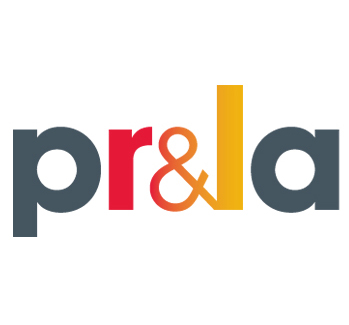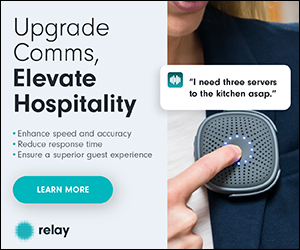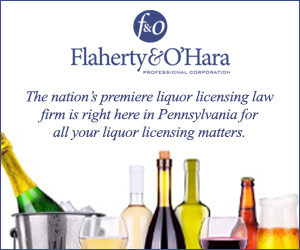PRLA Three-Year Plan
On January 29, the Pennsylvania Restaurant & Lodging Association (PRLA) alcohol service, government affairs and lodging and tourism committees met to amend the association’s three-year legislative strategy. This year’s priorities are:
January–June 2019
Top priorities:
- Tipped wage preservation/extreme minimum wage
- Alcohol service licensing plan
Priorities to monitor, in case we need to engage:
- Sales tax shift on alcohol
- Governor’s proposed salary threshold/exempt employees’ regulation
Non-legislative items:
- Ensure proper implementation of Act 109 of 2018
- Establish a Tourism Partnership
July–December 2019
Top priorities:
- “Keep our Summers Sacred” (post-Labor Day school start) legislation to be filed
- Respond to anticipated revised salary threshold/exempt employees’ proposal
Non-legislative items:
- Association Health Plan solution
State Items
Budget address
Governor Wolf made his budget address in February, announcing a $34.1 billion proposal, which is an increase of $1.9 billion over last year, and contains the following key provisions:
$200 million increase to school and $50 million more for special education.
No increase in states sales or income tax.
Includes a major initiative to bolster the state’s workforce.
Increase the minimum wage to $15/hour and eliminate the tipped wage entirely.
Tourism line item
Due to the passage of Act 109 of 2018, funds received from Act 109 will be placed in a restricted account to be used by the tourism office for tourism promotion. Because of that, the “Marketing to Attract Tourists” line item in the Governor’s budget was zeroed out. Historically, that line item has been used to fund individual grants and projects of various entities around the state. PRLA continues to maintain that the legislature has the prerogative to fund those measures but that funding should continue to come from the general fund and not be pulled from the restricted account. We have finally been able to fund tourism in Pennsylvania, and it is PRLA’s top priority to protect it.
Governor’s minimum wage proposal
The Governor has announced the most aggressive minimum wage proposal yet, and he specifically attacked the restaurant industry in his remarks.
- Increase the minimum wage to $12 beginning July 1, 2019.
- Increase the minimum wage 50 cents every year until it reaches $15/hour in 2025, then increase it annually based on cost of living.
- Claims this will “save” Commonwealth $36 million.
- This proposal will increase the wage for “1 million people.”
- Rep. Patty Kim (D, Dauphin) and Sen. Christine Tartaglione (D, Philadelphia) will champion these bills in the House and Senate, respectively.
- Eliminate the tipped wage completely because:
- “People will continue to tip.”
- “Tips are a tax on the general public.”
- “Servers are subject to harassment in the workplace because of their reliance on tips.”
Labor preemption
Rep. Seth Grove (R, York) has reintroduced his legislation that would preempt local municipalities from passing labor mandates on business. HB 331 is expected to be considered by the House Labor & Industry Committee in the coming months.
Department of Revenue Act 109 guidance
The Department of Revenue has updated its Act 109 guidance to allow for “dual remittance” of the state occupancy tax under the Act. With this updated guidance, in-state hotels can continue to remit state and local occupancy tax the exact same way they always have.
REAL IDs
On March 1, PennDOT started issuing REAL IDs. The PLCB has created a webpage (http://bit.ly/PLCBREALIDs) to review details of the new ID.
Federal Items
Federal minimum wage
Now that they have control of the U.S. House, Democrats have introduced legislation that would increase the federal minimum wage to $15 over six years, index it to inflation, and eliminate the tipped wage entirely. There could be enough votes to get it through the House but it is unlikely the Senate will support the measure and a certainty that the President would veto it if it reaches his desk.
Federal DOL overtime rule
The federal Department of Labor continues to move forward with updating the federal regulations as it pertains to the “overtime rule.” The original rule change, proposed by the Obama Administration, would have increased the minimum salary for exempt employees from $24,000 to $47,000 and was struck down by the Courts. The new rule, which has been submitted to the White House for review, is expected to increase the cap from $24,000 to $35,000 for exempt employees.
Federal—H-2B Visas
A provision was included in the recently passed federal funding measure that allows the Departments of Labor and Homeland Security to increase the number of H-2B visas to about double the current annual cap of 66,000.
Local Items
Philadelphia—predictive scheduling
Philadelphia City Council voted 14-3 to pass predictive scheduling legislation. The bill impacts businesses with 30 or more locations worldwide and 250 employees. The legislation will take effect January 1, 2020. In the meantime, PRLA will continue to advocate for common-sense amendments to ensure a win-win for employees and employers alike.
Philadelphia—Pharma Bill
Legislation in Philadelphia that would have banned the spending on food and drink by pharmaceutical companies in Philadelphia failed in City Council by a vote of 9-5, with two members abstaining and one member absent. PRLA wants to thank all of our members in Philadelphia who reached out to Council about the impact this bill would have had on their businesses. That grassroots effort really secured the votes we needed to defeat this proposal.
Philadelphia—Cashless ban
Mayor Kenney did sign Bill #180943, which would ban cashless stores in the City of Philadelphia. While there were a few exceptions outlined in the bill, brick and mortar establishments will be required to accept cash for purchases. The legislation takes effect July 1, 2019, and violations can come with a fine of up to $2,000.
Pittsburgh—mandated paid sick leave
The Pennsylvania Supreme Court heard oral arguments on our Pittsburgh paid leave lawsuit, which PRLA believes is in violation of their Home Rule Charter. There is not a timeline on when the Court must rule, so it could take up to a year. •













